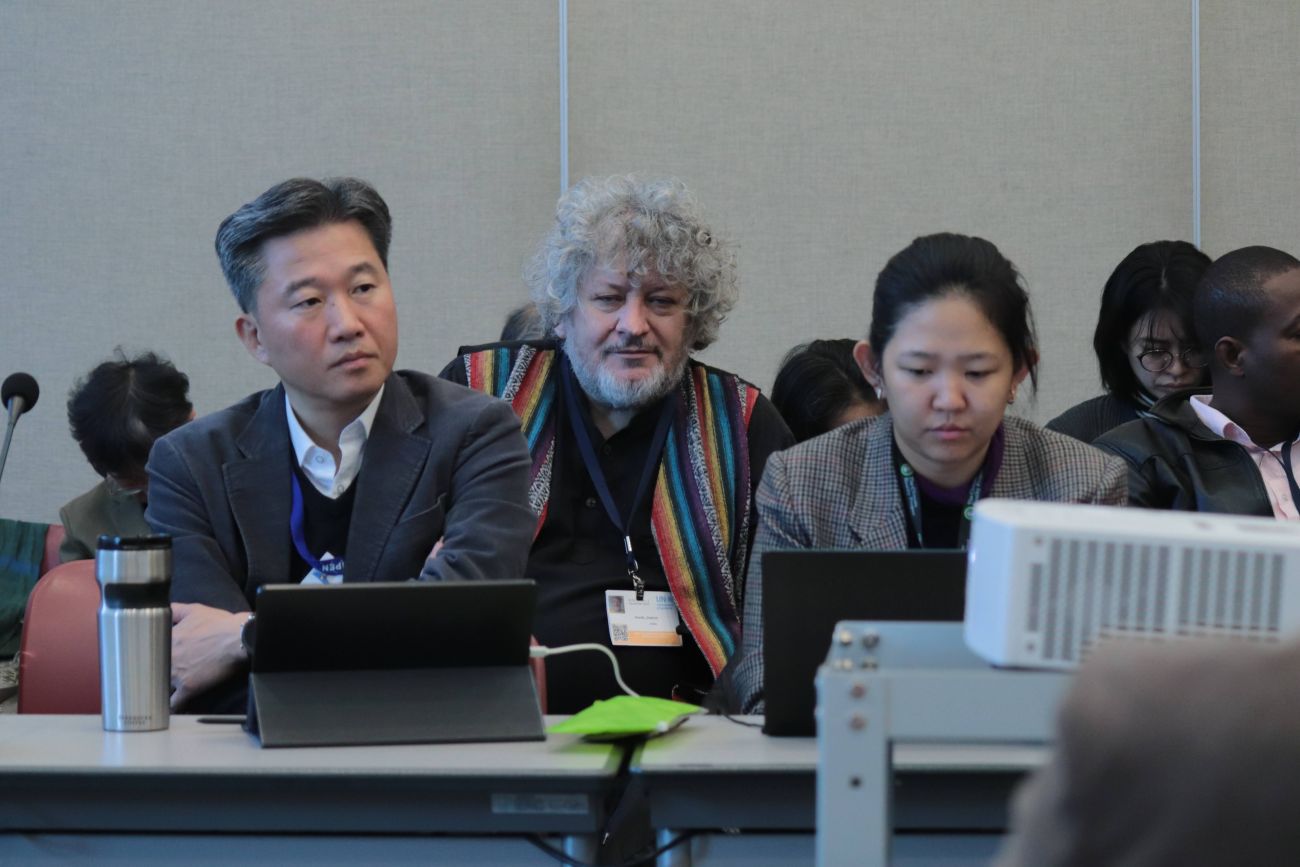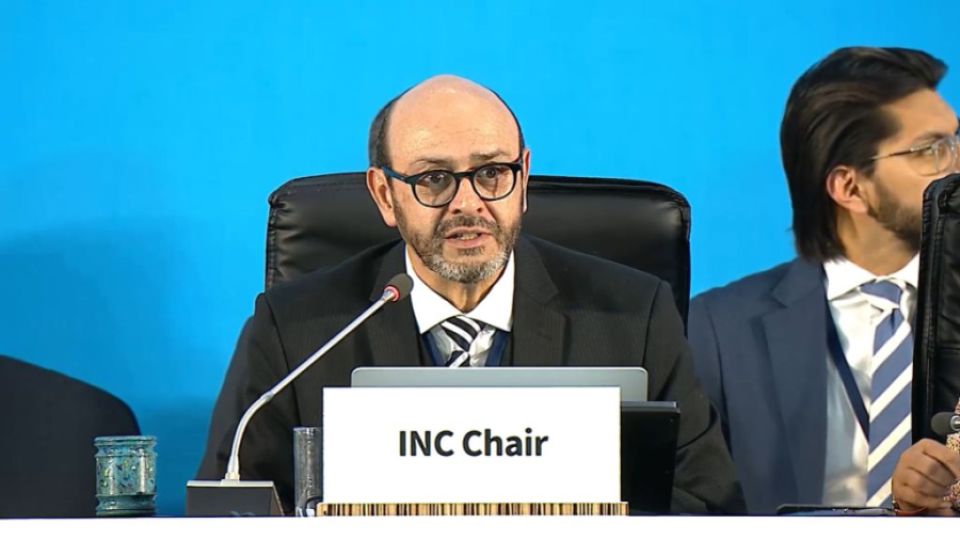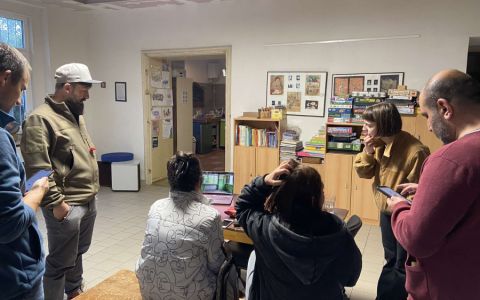Negotiations on the UN Global Plastics Treaty in Busan, South Korea, adjourned at 3 a.m. on Monday without reaching a consensus on key issues. The document will now require further negotiations. Progress was essentially stalled by a bloc of oil-producing countries, supported by major producers of plastics and chemical additives in plastics. Notably, Saudi Arabia denied at the outset of the negotiations that microplastics are harmful to human health—a claim contradicted by numerous scientific studies.
The so-called Plastics Treaty has the potential to be a truly historic document, establishing clear and binding rules to combat the pervasive pollution caused by plastics and their toxic additives. However, to effectively address the escalating plastics crisis, the treaty must not only be global in scope but also include specific commitments to reduce plastic production, regulate associated chemicals throughout the lifecycle of plastic materials, and implement mechanisms for comprehensive monitoring and financing. These measures should align with the polluter-pays principle, as previously outlined by Arnika.
The fifth UN-led meeting fell short of expectations. States benefiting from oil extraction and refining blocked ambitious proposals by employing procedural delays and questioning scientific evidence.
Since the UN operates by consensus—a process that remains unchanged despite calls for reform from more proactive nations—the opposition of even a small group of states was sufficient to stall the agreement indefinitely. Notably, Saudi Arabia and Russia opposed any restrictions on plastic production.
Another contentious issue is how binding the final treaty will be. Fossil fuel and plastics-producing nations favor voluntary, compromise measures, while countries burdened by imports of plastic waste from wealthier nations are skeptical of their effectiveness. "A convention that relies only on voluntary measures would not be acceptable," Juliet Kaberu, director general of Rwanda's Environment Authority, told CNN.
Take a look at our PHOTOGALLERY, which shows the atmosphere of the meeting in Busan, South Korea.
It was Rwanda, along with Mexico, that spoke on behalf of nearly a hundred countries on the final day of negotiations, calling for a strong Plastics Treaty that is not afraid to take action to reduce both the production of plastics and the hazardous substances associated with them. Most countries attending the meeting also expressed support for the Panama-led proposa, which presents a comprehensive strategy to reduce global plastics production through an approach that covers the entire life cycle of plastics - from production to disposal.
By contrast, the positions of other countries—most notably the largest producers of plastics, China and the United States—are less clear. As AFP noted, both the Chinese and U.S. delegations were conspicuously absent from Sunday’s press conference held by countries advocating for more decisive action. China expressed views similar to those of states openly blocking the treaty. "I believe this is because China is a major producer of both plastics and, more importantly, the chemical additives used in plastics," commented Jindřich Petrlík, who participated in the negotiations as a representative of Arnika, a member organization of the IPEN network. According to Petrlík, India was another country actively blocking the treaty.
Industry lobbying has done its job, but has not won yet
The negotiations in Busan had to contend not only with the procedural maneuvering of fossil-fuel states but also with the influence of the fossil lobbying apparatus. There were 220 lobbyists present—outnumbering the entire European Union delegation, including its member states, and tripling the number of scientists. Environmental organizations have criticized the negotiation process as opaque and discriminatory.
Jindřich Petrlík, the only representative of Czech civil society in Busan and a toxic substances expert from Arnika, pointed out during the negotiations the clear exclusion not only of experts and environmentalists but also of representatives from groups most affected by pollution. "For three out of the seven days, only government representatives held discussions behind closed doors. Compared to other treaties, the participation of observers was significantly restricted, which did not bode well," Petrlík said. Observers were given only minimal space to contribute during the negotiations and, due to limited seating in the room, often could not even attend from the outset.
While supporters of a strong Plastics Treaty are understandably disappointed, the delay is not yet the worst-case scenario. A far graver outcome would be the adoption of a weak, non-binding document that fails to address the plastics crisis and merely provides polluters with another excuse for inaction—a result that would benefit fossil fuel states and industries at the expense of ecosystems and public health.
For now, the path remains open. Delegates have agreed to resume discussions on the treaty's framework next year, though the exact time and location have yet to be determined.

No time to lose
The tardiness of the negotiations is especially striking given that there have been five global conferences on the treaty since October 2022, when the UN adopted a thematic resolution to develop an "international legally binding instrument on plastic pollution." Meanwhile, plastics are not disappearing from the planet—in fact, production continues to rise steadily. Approximately 33 million tonnes of plastic are now produced every month, and this number is expected to double by 2050, while recycling rates remain below nine percent, according to the UN.
Plastic pollution is already considered critical by experts and many government actors, not only due to the threat of plastic waste flooding some countries in the so-called global south but also because of the virtually indestructible toxic substances that can be transferred from plastics, even through recycling. Additionally, microplastics have become literally ubiquitous. It is estimated that the amount of microplastics in the environment doubles roughly in proportion to the total production of plastics—about every 15 years since the mid-20th century.
These miniature plastic fragments are now found not only in the oceans but also in freshwater, drinking water, air, fruit and vegetables, processed food, toothpaste, and more. Research has detected them not only in human blood but also in the placenta and amniotic fluid.
It is increasingly clear that plastics, as a material, must be phased out wherever possible, and that we must realistically talk about reducing their ever-increasing production. Recycling is far from keeping pace, and incineration, for example, is not an acceptable systemic solution. A recent analysis co-authored by Arnika reveals that incinerators pose a long list of environmental and other risks. In addition to producing a range of toxic substances that directly threaten public health, they also emit large amounts of greenhouse gases, further accelerating climate change.
Environmental organizations, including Arnika, have long warned that ecosystems and humanity are not facing a single, straightforward problem, such as microplastics or climate change, but a complex, triple planetary crisis. This crisis encompasses climate change, various types of pollution, and the loss of biodiversity. It requires consistent, expert-based solutions that are adopted transparently, with input from civil society and groups most affected by these issues. Such solutions must include a strong UN Plastics Treaty.

The project was supported by the Ministry of the Environment of the Czech Republic. The project does not necessarily reflect the views of the Ministry of the Environment.







